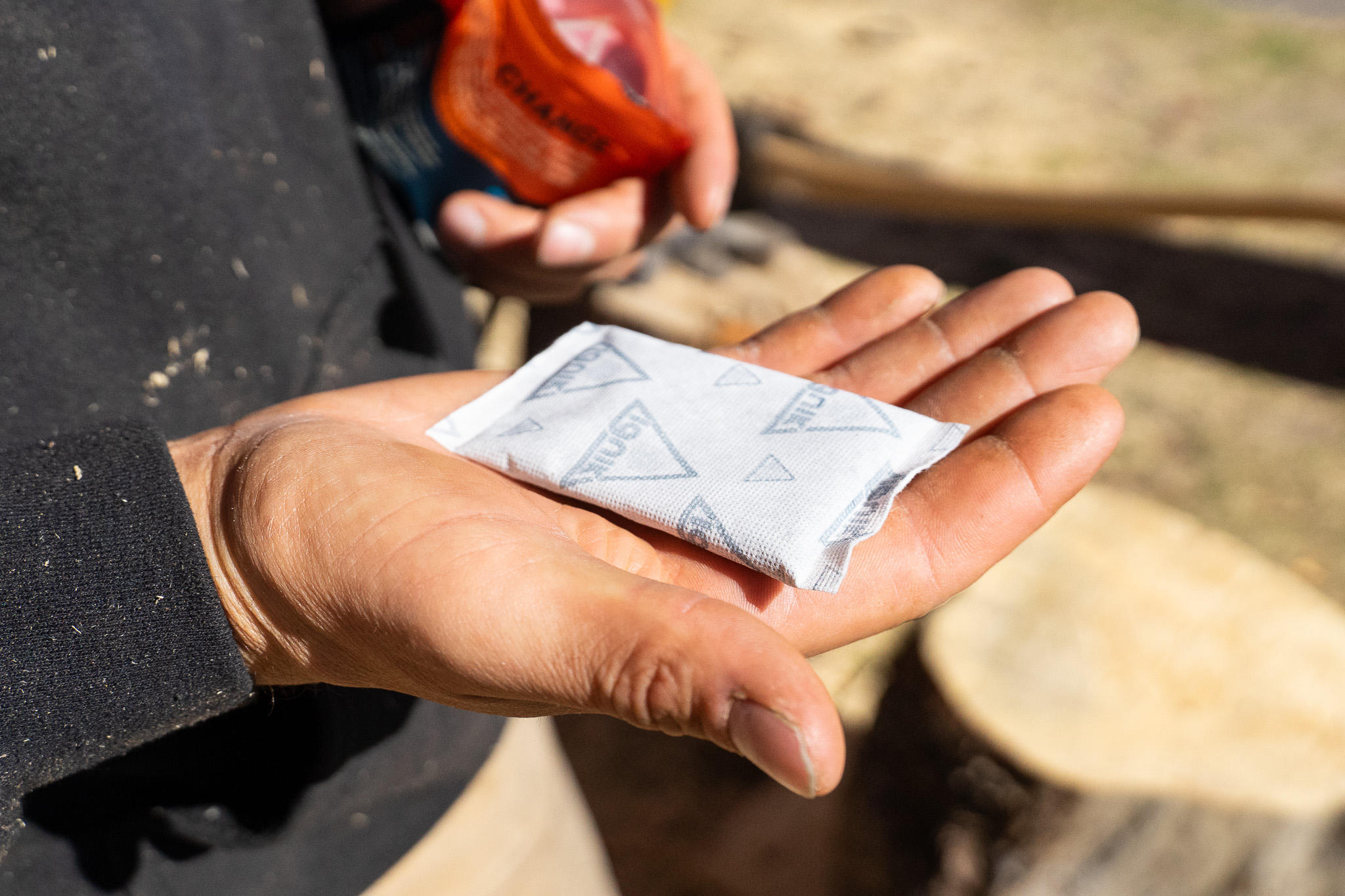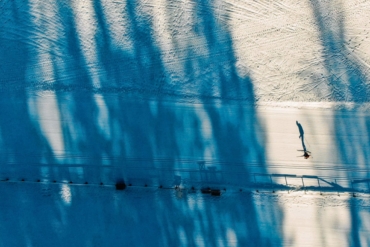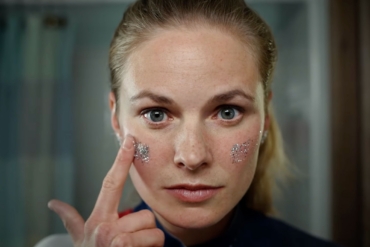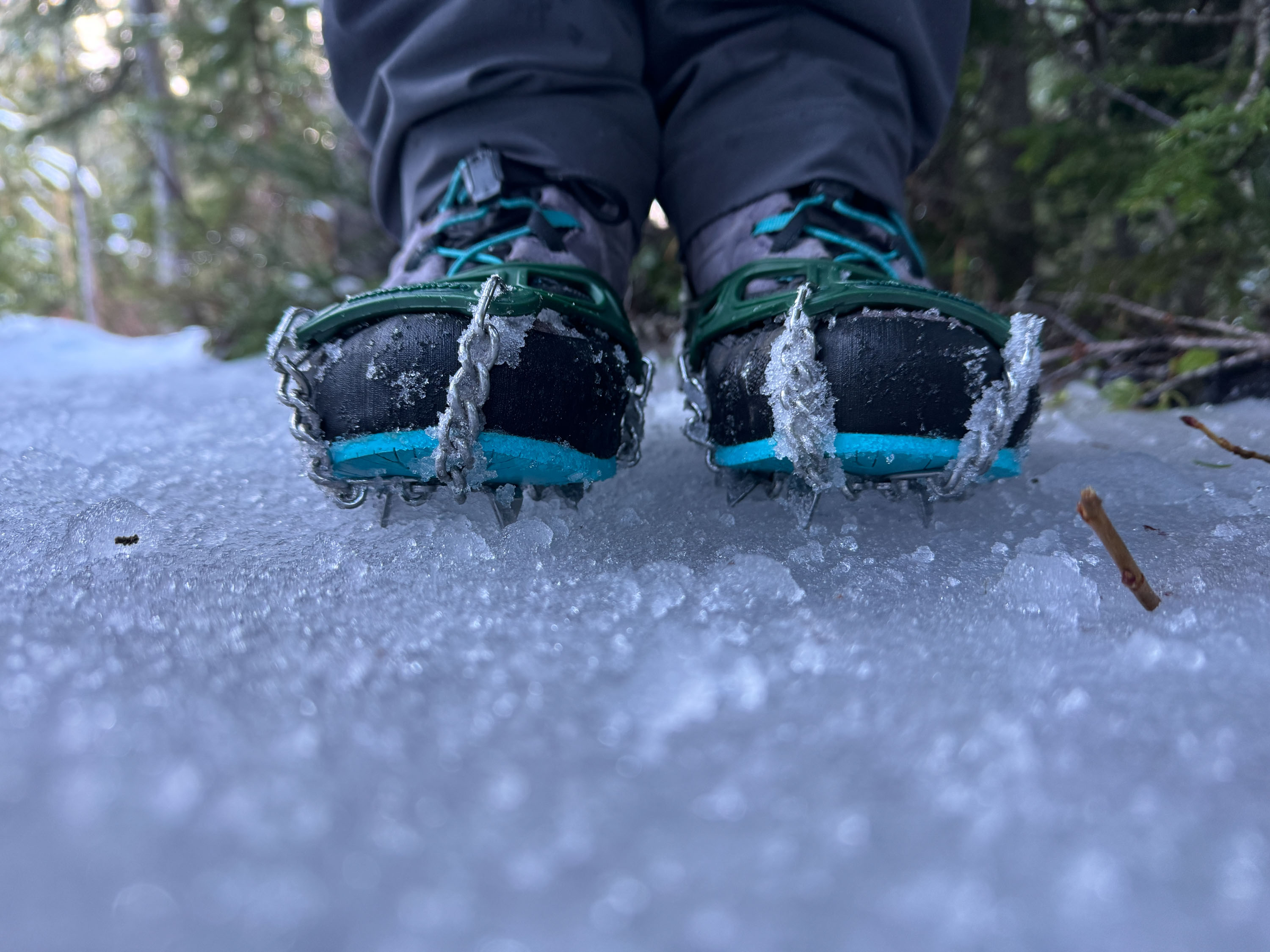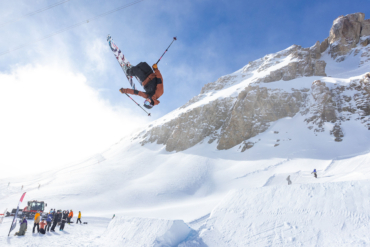This morning, after months of simmering and silent complaints, Tyler released his pent-up frustrations in a reflective rant that lasted close to thirty minutes. I listened to him as a friend who knows he should just listen. He is a good man, the clear-headed sort you want in a tight spot in the Arctic. I trust him with my life, and I know that his venting will clear the air and make us stronger. Still, I feel blindsided and a bit distracted. I wish I could just call up my girlfriend Jennifer and talk it through with her.
Newly frozen leads are exciting but treacherous. When we ski up to a lead, it always makes us slow down and think. If the crossing goes smoothly, we’re on our way. If we screw up, we’re in the ocean, in a race for survival. After a few more jabs at the ice with my pole, I agree with Tyler. “Yeah. Yesterday we walked over ice like this.”
I’m standing on the apron of the newly frozen lead. The ice here is white and solid. I shove off and begin to slide toward the dark ice. We always move fast across a lead, so I put some muscle into my stride. Right away I sense that something is horribly wrong.
Puddles appear on the ice. I feel myself skiing downward as the ice below my skis begins to sink. It’s as if I’m on an escalator, slowly descending into the abyss. There is no turning around as water begins to swallow me. “John, you’re going in! Ski faster!”
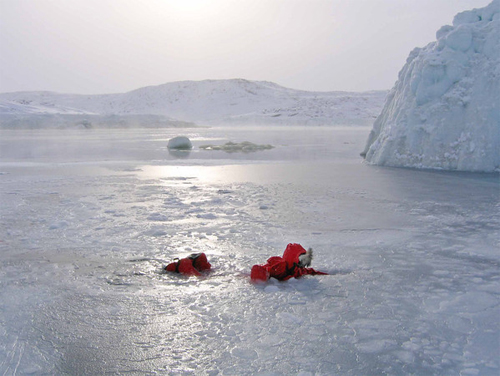
I’m about thirty feet in front of Tyler. I try to ski faster, but I keep sinking. My brain grasps the inevitable: I’m going to have to swim. “I’m okay. I’m okay,” I yell back to Tyler. Now I’m in up to my neck in the ocean, awkwardly treading water while still gripping my ski poles. I can’t lose my skis! If my skis fall off, the expedition is doomed. The ocean water begins seeping through my clothes. At first it feels strangely warm, but after twenty seconds the piercing cold invades my hands, feet, and crotch.
My mind scrolls through the items I’m carrying. My camera is in one pocket, my compass and GPS in another. I’m wearing a backpack that contains our tent and a five-pound package of freeze-dried cheese. The backpack is tethered to my pulk, which now floats behind me.
Somehow the skis stay attached to my boots. I turn around and begin to struggle toward the apron of ice where Tyler is crouching. Tyler pulls out our emergency throw bag, like the kind used in river rescues. He throws the bag but it falls well short. Now he is on his hands and knees, reaching to me with a ski pole. “Grab on!” he yells. I just keep swimming.
The sound of his voice, the splashing water, the gusting wind—everything around me thunders in my ears. I can taste seawater. Closer now, Tyler extends his hand. “No,” I say, fearing that if I grab it, I’ll pull him in. Already there is water around his knees, as the apron threatens to give way. If we’re both in the water, there will be no one to rescue either of us.
My body is already shunting blood toward my internal organs, the automatic reaction to impending hypothermia. I’m starting to panic, not from the fear of dying, but from the fear of frostbite.
Instead of grabbing his outstretched hand, I toss my poles toward him. I try pushing down on the edge of the apron, but chunks of it break away. After several more attempts, the ice finally holds. Like a swimmer at the edge of a pool, I haul my body up onto the frozen surface and awkwardly roll out of the water with my skis still attached.
continued on next page. . .

